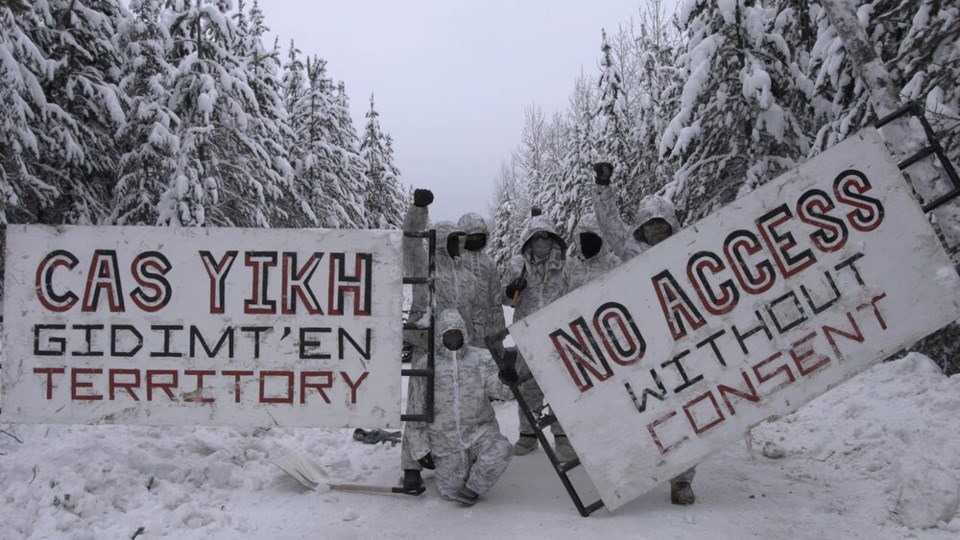Elders from B.C.’s Pacheedaht and Wet'suwet'en First Nations have signed an open letter calling on Prime Minister Justin Trudeau to stop siding with industry looking to develop new fossil fuel projects and log old-growth forests.
The letter, dated Dec. 14, implores Trudeau to “listen to the youth” and defend “life rather than perpetuating extractivism” through six actions. They include: playing a permanent moratorium on old-growth logging; stopping all construction of new fossil fuel projects, including the Coastal Gas Link and Trans Mountain pipelines; and ending the surveillance and policing of Indigenous land defenders opposing their development.
Together with B.C. scientist and broadcaster David Suzuki, the group also implores Trudeau to take federal dollars used to police extractive projects and reallocate them to Indigenous communities so they can develop their own climate solutions and prop up alternative livelihoods. It comes as representatives from 196 countries meet in Montreal at COP-15 to develop a global framework to protect nature and halt biodiversity loss across the planet.
“This could be your moment, Justin. COP-15 in Montreal could be the defining moment of your legacy as prime minister,” wrote Pacheedaht Nation Elder Bill Jones, Wet'suwet'en Elder Marlene Hail and Kenneth Deer of the Kahnawake Nation.
The Canadian government enters the negotiations having pledged to protect 30 per cent of Canadian lands and seas by 2030. The move is part of a global push to halt and reverse biodiversity loss by the end of the decade at a time the world is losing species at a rate not seen since the extinction of the dinosaurs 66 million years ago.
Ottawa has also said it would put Indigenous people at the centre of conservation, and last week, pledged $800 million toward Indigenous-led conservation projects.
“Indigenous-led conservation is really at the forefront of a lot fo the protection measures not only in Canada but around the world,” said Christine Smith-Martin, CEO at Coastal First Nations hours after the announcement was made.
Coastal First Nations, which include 10 nations across B.C.’s central and north coast, were among 17 nations that will work together to protect the Northern Shelf Bioregion. It includes deep fjords, island archipelagos ringed in rich coastal ecosystems, and globally unique glass sponges.
Smith-Martin said it's not yet clear how much of the promised funding will go to support its conservation projects spanning the Great Bear Sea, and how much will fund other projects in Nunavut, the Northwest Territories and Ontario.
Since 2007, the alliance of B.C. First Nations has worked together with philanthropic groups to protect millions of hectares of temperate rainforest while creating more than 1,200 jobs in science, tourism, fisheries and a growing Indigenous Guardian program.
Their success has been adapted around the world to support large-scale conservation projects in at least nine countries, said Smith-Martin. The latest Great Bear Sea initiative is looking to expand that success across coastal and marine ecosystems.
“Our coastal communities are on the front line of climate change. We’re in the best position to work collaboratively and protect these oceans,” she said. “We want to ensure that we have guardians on the sea.”
Once it’s clear how much funding will come from the federal government, Smith-Martin said the group of First Nations will consult their communities and work with experts to develop a multi-forked plan to conserve large swaths of sea off B.C.’s coast.
“We may not have all the answers, but we certainly know how to get there,” she said.
Wednesday’s open letter to Trudeau calls for such programs to be rolled out across traditional Indigenous territory.
“Instead of offering up endless Crown land for extractive development, give it back to the Indigenous peoples from whom it was stolen,” they write.



